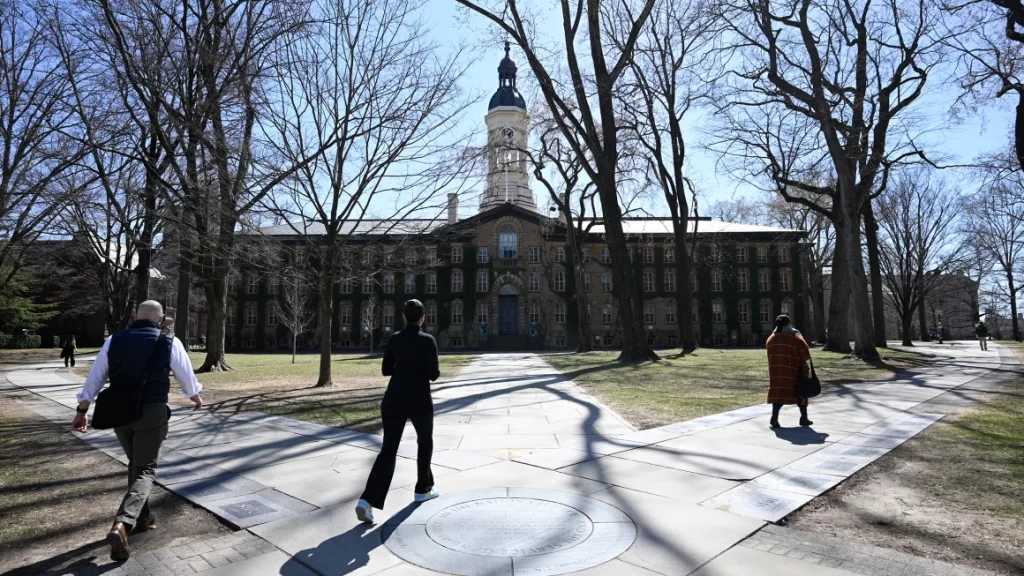In an escalating campaign against elite universities, the University of California system and Princeton this week joined more than a dozen top schools, including Harvard, Duke, and Stanford, in announcing hiring freezes.
Johns Hopkins University reported laying off over 2,000 employees after losing more than $800 million in funding from the U.S. Agency for International Development (USAID), amidst White House efforts to reduce wasteful spending and downsize the federal government.
These drastic moves come as dozens of colleges and universities face federal investigations for allegedly failing to protect Jewish students during pro-Palestinian demonstrations that disrupted campuses nationwide last spring over the war in Gaza.
And in the biggest salvo in the escalating war against elite universities, the Trump administration this month targeted Columbia University, canceling approximately $400 million in federal grants and contracts over allegations of antisemitism on campus.
Washington’s unprecedented campaign against Ivy League schools has the attention of U.S. higher education leaders, who must weigh whether to acquiesce or fight back against a series of onslaughts on issues ranging from pro-Palestinian activism to diversity programs and transgender women competing in women’s sports.
Higher education leaders warn that the dangerous assault against the country’s leading universities has unfolded rapidly on multiple fronts, threatening not only America’s economic and technological strength but also its vaunted democratic system and traditions of academic freedom and free speech.
“It is, I think, the most serious intrusion into academic freedom and the autonomy of universities,” said Lee Bollinger, a First Amendment scholar and Columbia’s president emeritus.
“We’re seeing a kind of effort to transform all parts of the government and all major parts of civil society to bring those into a partisan ideological conformity that is characteristic of emergent authoritarian regimes.”
Bollinger said the warning signs are evident: attempts to gain greater control over the traditional civil service sector and administrative agencies; the ignoring of the rule of law and judicial orders; attacks on the media, law firms, and universities; and the crackdown on equity and inclusion programs.
“The pattern of behavior here – the attacks on the courts, the attacks on the rule of law, on law firms, on media, and now on universities – they’re part of a pattern of intimidation that is very alarming,” Bollinger said. “How universities respond will play into how other institutions respond.”
On Thursday, the White House delivered another blow, signing an executive order to begin dismantling the U.S. Department of Education, which is responsible for administering federal funding for students with disabilities, along with federal Pell Grants for undergraduate students from low-income households.
“I think this is a whole ‘nother level,” said Morton Schapiro, an expert on the economics of higher education and former president of Northwestern University, of the series of moves. “This is certainly the greatest challenge I’ve seen.”
White House spokesperson Kush Desai defended the moves.
“The Trump administration’s decision to pause federal grants to universities is linked to these institutions’ inability to address rising antisemitic violence and protect biological women on their campuses – factors that are also not conducive to intellectual inquiry and advancement,” Desai told CNN this week. “The Trump administration is committed to increasing transparency in our scientific research apparatus while cutting waste, fraud, and abuse.”



